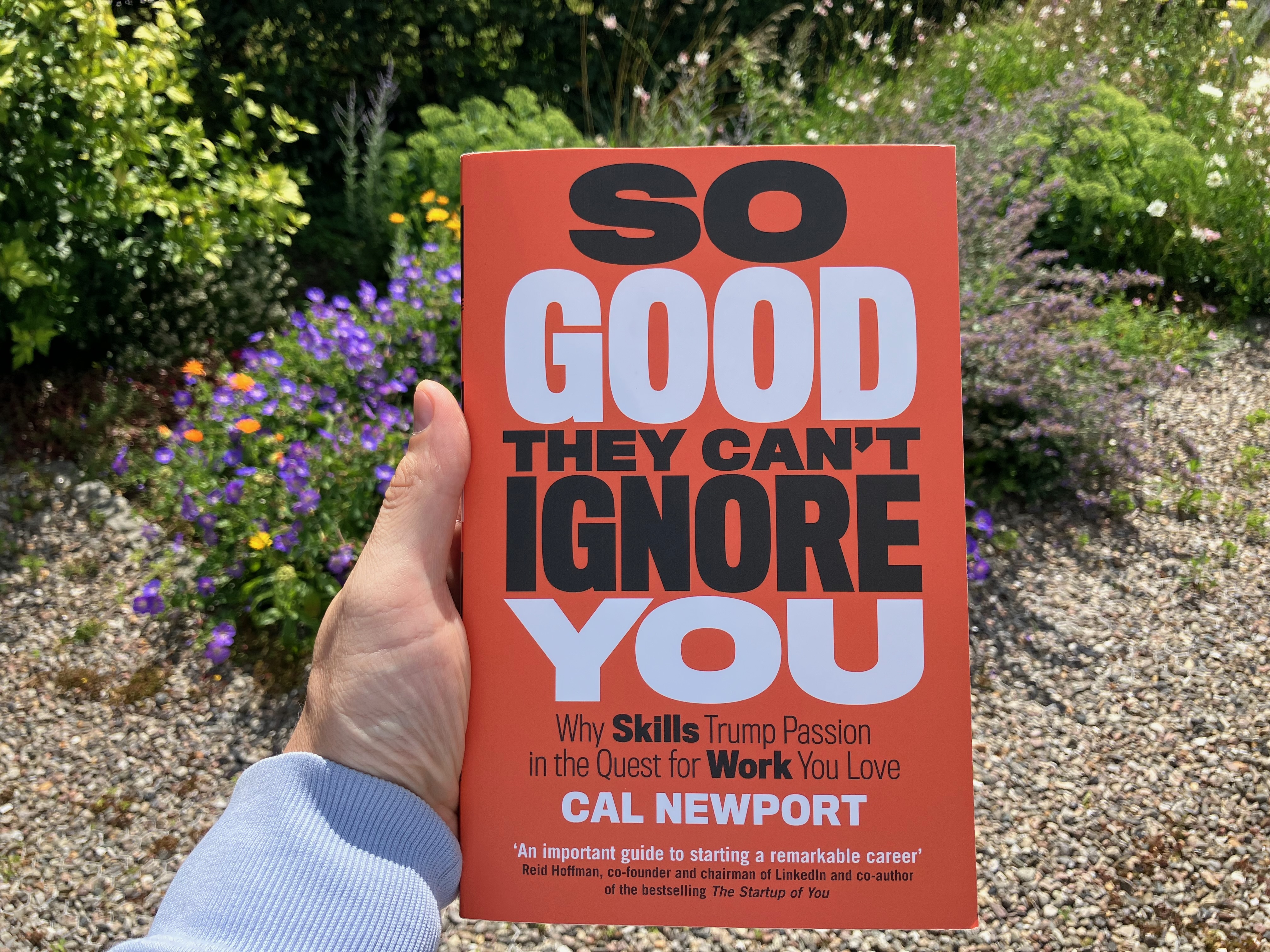Review "So good they can't ignore you"
Are you at the beginning of your career and want to follow your passion, but don't know how? Or are you in the middle of your career and wondering if your dream job is waiting for you somewhere? You're asking the wrong questions, and this book explains which questions you should be asking instead!

About the Author
The author, Cal Newport, is a professor of computer science at Georgetown University. His research focuses on distributed algorithms and theoretical computer science—which is an unusual focus for someone who writes books about careers and productivity.
Cal became known for his books on topics such as professional fulfilment, concentration, and digital distraction. I examine his first book, “So Good They Can't Ignore You,” from 2012, in this article. His podcast “Deep Questions,” in which he answers readers' questions on topics such as focus, technology use, and work ethic, is also well-known.
Newport regularly writes for major publications, including The New York Times and The New Yorker. He is not a fan of social media and consciously avoids X, Instagram, and the like. His philosophy: Deep work > constant availability—focus and concentration are crucial in a distracting world.
What is the book about?
“So Good They Can't Ignore You” by Cal Newport is a career book that dispels misleading advice: “Follow your passion.”:
Professional fulfillment doesn't come from pursuing preconceived passions, but from developing rare and valuable skills—so-called career capital.
Throughout the book, Cal uses examples to show why other paths to job fulfilment are more promising. A large part of this is the mindset: the craftsman mindset. Furthermore, it's crucial to gain control—that is, to work independently. Cal also shows when this is possible and how this control can be achieved.
When Cal mentioned the 10,000 hours necessary to master a skill, I was reminded of Matthew Syed's “Bounce — The Myth of Talent and the Power of Practice” (see my book review).
What's so great about that?
I also entered the working world with the principle of “turning your hobby into work.” And it has stayed with me for decades. Phrases like “When your hobby is your job, it doesn't feel like work” were my longtime companions. Over time, I began to doubt it. Cal clearly explained why I started to doubt it.
I built what I call career capital through intensive study, constant learning, failures, and perseverance. I've gained control in my job and can say with a clear conscience: “I love my work.” Indeed, not every aspect and every activity. And I don't have to. That would have to be the case if it's my passion and calling. I'm good at what I do, and that's why I enjoy it.
This realization is reassuring. Until this book, there was a voice in the back of my mind asking: Are there other activities out there that fulfil you, and everything would suddenly be so much better? I can answer that with a no. I do what I can. If I want to do something else, I learn it in the background and switch gears as soon as I've mastered it.
What's annoying about that?
One of the building blocks for finding your mission is to completely immerse yourself in your respective field so that your knowledge reaches the limits of what's known. It's in this area (aka cutting-edge) that the missions await. Of course, this requires years of hard work and learning. I believe that a mission isn't only found there, and not everyone needs to delve into a subject area in such depth. I skipped that part, and I am taking the other tips to heart.
The best quote
In the back of the book, Cal writes something like this: Anyone who has read this far, like Cal himself, is already familiar with and accustomed to hard work, so it's not a deterrent, as it is for daydreamers. I appreciate this rhetorical move, this passive-aggressive way of encouraging the reader to continue.
What have I learned?
My most important insight: Instead of constantly searching for the “right” job, you should learn truly to master your work. Passion follows ability – not the other way around. Furthermore, based on Cal's conclusion, I asked myself a few questions to become more aware of some things.
- What is my career capital?
- How can I get out of my comfort zone more often?
- Am I currently stuck at the “acceptable level”?
Why should everyone read the book?
“So Good They Can't Ignore You” is a clever, refreshingly unpretentious book about the path to professional fulfilment. Instead of chasing the advice “Follow your passion,” Cal Newport advocates something more down-to-earth—and at the same time more effective: Those who become excellent create the freedom that many seek.
In my opinion, the book is particularly valuable for a handful of people in certain situations:
- Students and young professionals seeking guidance.
- Job-dissatisfied individuals who believe they've “missed their dream.”
- Freelancers and creatives who want to gain control over their work.
- Career changers seeking sustainable motivation.
In summary, this book is for anyone who doesn't want to build castles in the air, but instead creates a solid foundation for a fulfilling career. And now I'm going to sit down and answer my three questions from above for myself.
Are you also stuck at the “acceptable level”?
Is it bad to be at this point? Isn't that a form of reward for past work?
Enjoy or get out of your comfort zone?